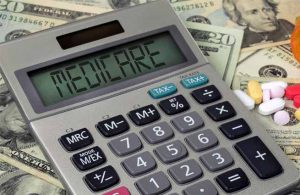The Likelihood of Medicare for All
 After passing the Affordable Care Act in 2010 and watching Republicans begin to dismantle it in 2017, many Democrats now are proposing Medicare for All. Whether Medicare for All becomes law depends a great deal on who controls the House and Senate. For now, it has little chance of passing because Republicans control the Senate and President Donald Trump argued that Medicare for All would be disastrous.
After passing the Affordable Care Act in 2010 and watching Republicans begin to dismantle it in 2017, many Democrats now are proposing Medicare for All. Whether Medicare for All becomes law depends a great deal on who controls the House and Senate. For now, it has little chance of passing because Republicans control the Senate and President Donald Trump argued that Medicare for All would be disastrous.
Democrats control the House, but Speaker Nancy Pelosi and a number of party moderates also are resisting the proposal. Currently, half of U.S. health care costs are covered by private insurance through employers or individuals who are self-insured. The other half is from federal, state and local governments paying into Medicare and Medicaid. Medicare is a federal government-run health insurance program for Americans who are 65 or older; for younger people with disabilities; and for people with End Stage Renal Disease.
All Americans pay for the program from taxes withheld from their paychecks. Medicare Part A is available for no cost and covers hospital stays only. Individuals on Medicare can pay for additional coverage — Part B — from Medicare-approved private insurers to cover other services such as dental, vision care and prescription drugs. According to a recent Gallup poll, about 79 percent of those who use Medicare or Medicaid (the government’s health program that covers those with limited income), are happy with the quality of their health care and believe that they have good to excellent health coverage.
Many of those who want Medicare to cover all Americans believe that health care is a human right and the Medicare for All proposal will help rein in growing health care costs. Those opposed, such as The Heritage Foundation, stress that “The British and Canadian experiences with single-payer demonstrate that universal government coverage is not the same thing as universal access to quality care,” … and that “social inequalities in accessing care, based on wealth or political influence, are often exacerbated.” Plus, the cost would drastically increase taxes.